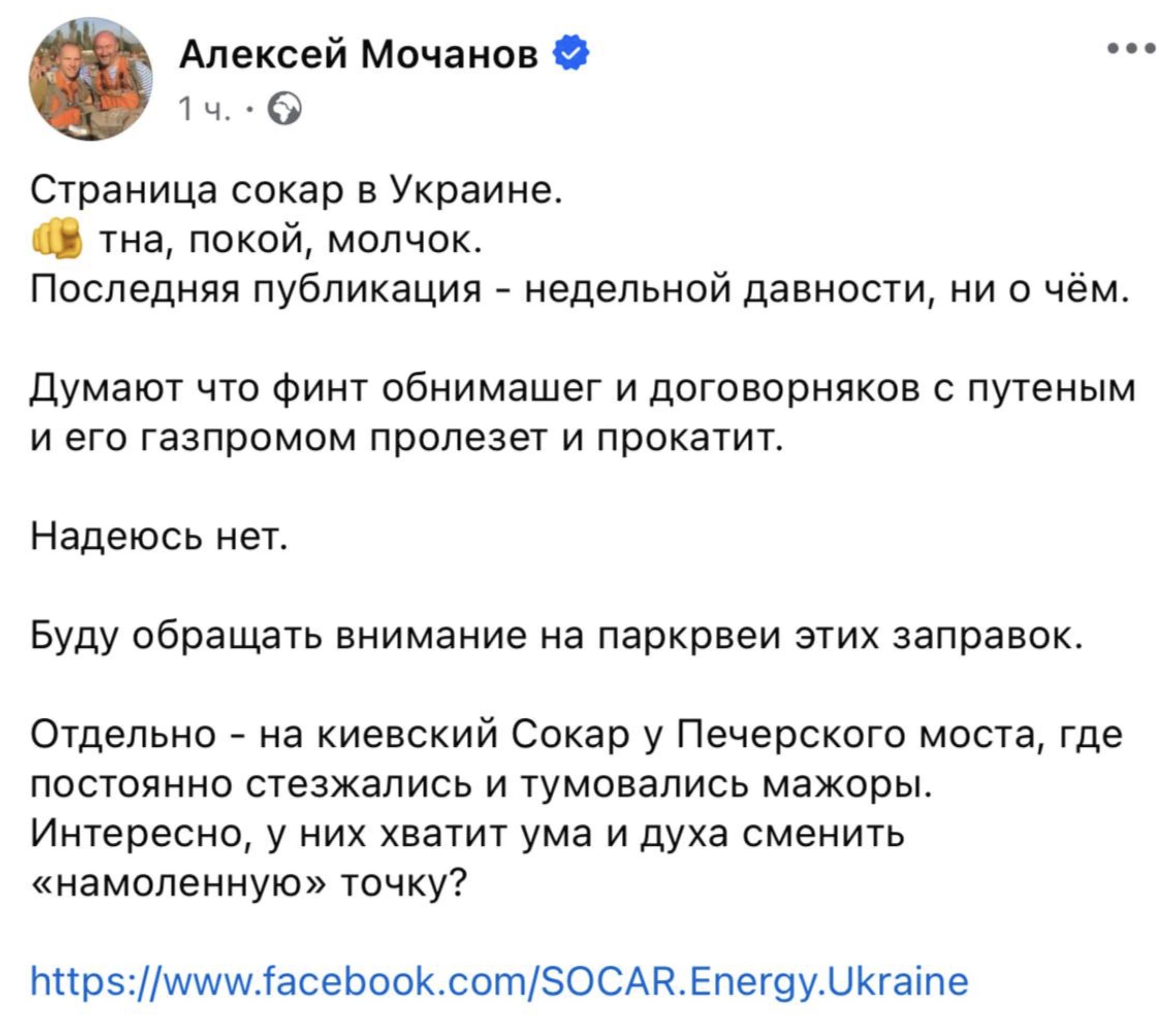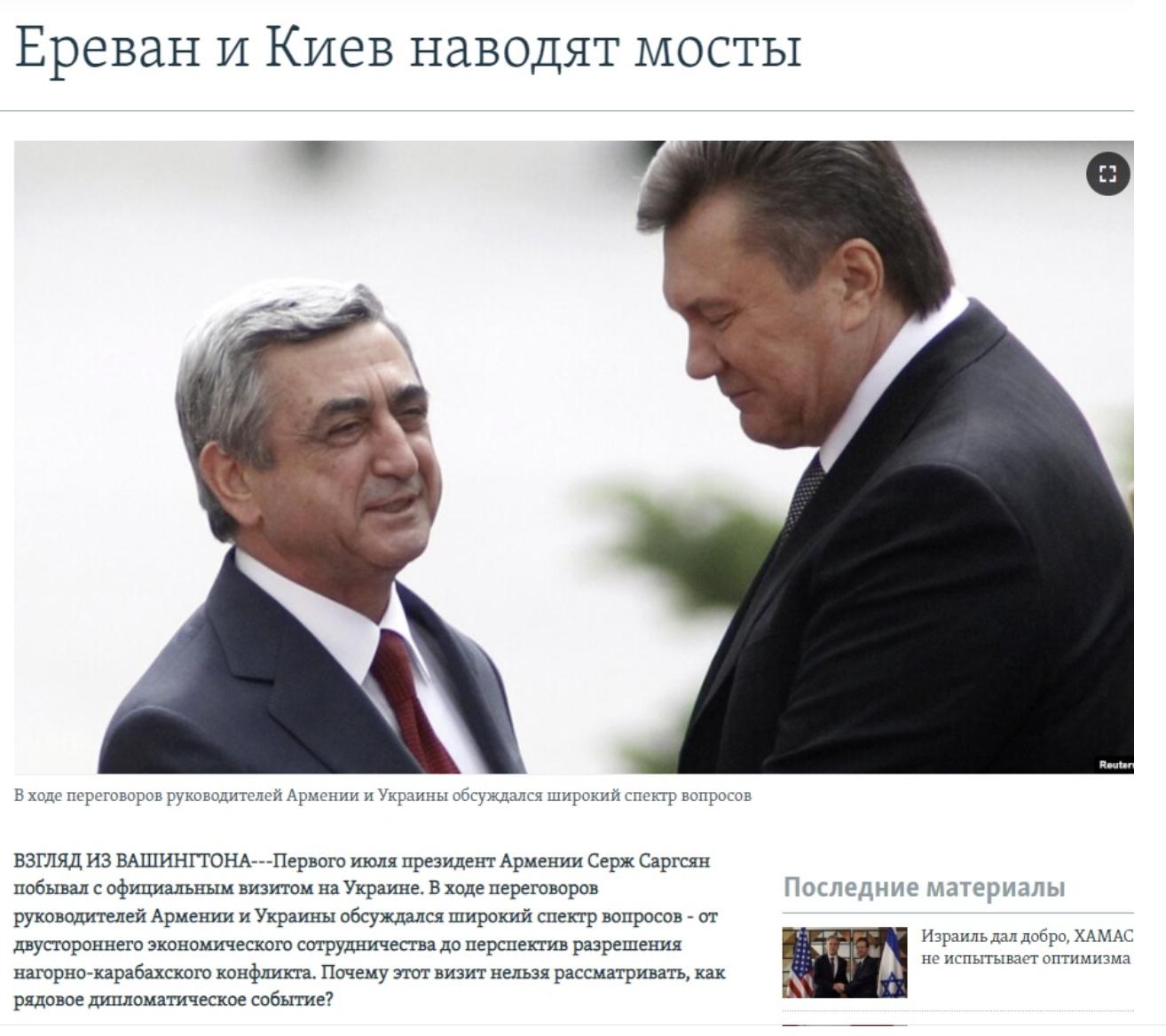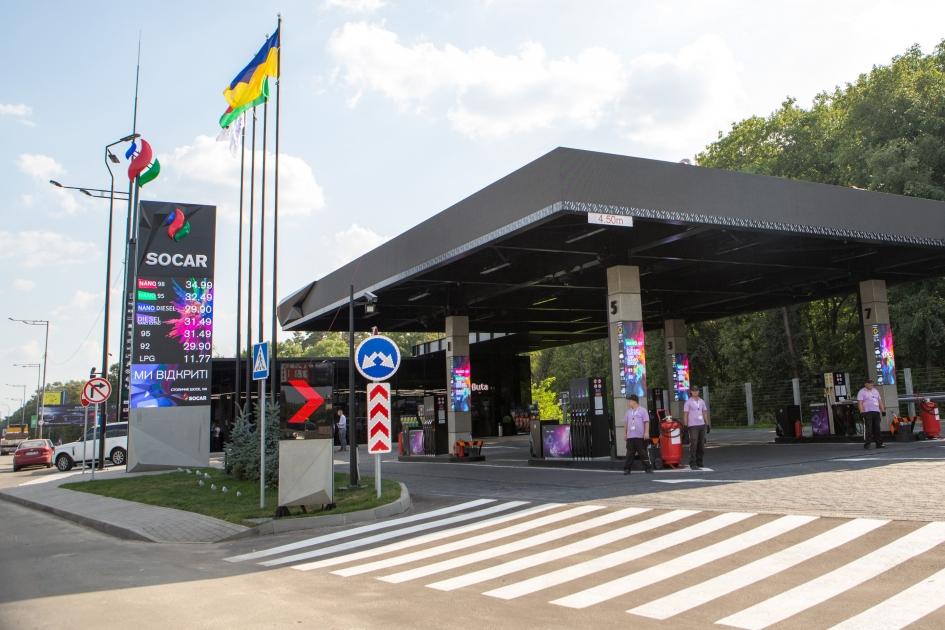Ukraine’s boycott crusade: Azerbaijan’s deal with Gazprom ignites media fury SOCAR in crosshairs
The recent state visit of Russian President Vladimir Putin to Azerbaijan has sparked an unexpected wave of anti-Azerbaijani sentiment in Ukraine. While the West has long been known for its sharp criticism, the intensity of the media and social media uproar in Ukraine is remarkable.
Just a month ago, Ukrainian diplomats privately expressed dissatisfaction with what they saw as Azerbaijan’s insufficient support for Ukraine. Now, following Putin’s visit to Baku, Ukrainian media have launched a vigorous campaign against Azerbaijan. The official trigger for this backlash was the announcement that the State Oil Company of Azerbaijan (SOCAR) and PJSC Gazprom had reached an agreement to expand their strategic partnership. Notably, Gazprom’s delegation, led by Chairman Alexey Miller, participated in the events surrounding Putin’s visit.
Ukrainian media outlets like glavkom.ua have highlighted this issue, and social media users are calling for a boycott of SOCAR petrol stations in Ukraine. “In Ukraine, there are many petrol stations of this company. I urge our people to boycott this network!!! I also urge Ukrainian business to break all partnerships with this company!!!,” wrote military and social activist Oleg Simoroz on Facebook. Radio NV presenter Dmytro Tuzov also joined the boycott, stating, “Well, for now (until the true motives are clarified), I avoid SOCAR petrol stations after this embrace. I realize that ‘the East is a delicate matter’. And, perhaps, behind this embrace, there is some plan to counter Russia's expansion in the region. Maybe. We'll see. In the meantime, not a penny to SOCAR's Azeri petrol stations. I'll get by somehow. And I will see the real deeds of both Aliyev and his country.”


Among other media figures, well-known Ukrainian comedian Igor Lastochkin has also made a notable impact. He initiated a flash mob on his Instagram page, urging his followers to delete the SOCAR app from their mobile phones. With over 600,000 followers, Lastochkin’s campaign is contributing to the deliberate cultivation of negative sentiment towards Azerbaijan among the Ukrainian public.

In trying to understand these reactions, although without much success, it’s useful to examine the issue from both rational and emotional perspectives. While we will delve into the rational side in detail shortly, let’s address the emotional component directly. Simply put, Ukrainians do not have the right to express an emotional response to SOCAR’s partnership with the Russian gas giant. This is because, despite the ongoing conflict with Russia, Ukraine has not halted the transit of Russian gas through its territory and continues to receive payments for it. Gas transport has even persisted after the takeover of the Sudzha gas distribution station in the Kursk region by Ukrainian forces. Such a practice is unprecedented in wartime. Given this level of blatant cynicism, it is not only absurd but also highly immoral to accuse a third party of collaborating with an adversary.
The stance of the Ukrainian media appears even more absurd when considering recent information from reliable sources. It turns out that high-ranking officials from Ukraine and the EU have approached Azerbaijan, requesting its mediation to facilitate continued gas transportation through Ukraine to Europe. This development should serve as a stark reminder for our overly vocal Ukrainian counterparts to reflect on their own audacity.
Returning to the broader issue of Ukrainian indignation towards Azerbaijan, it is essential to reiterate a fundamental truth: Azerbaijan’s foreign policy, like that of any genuinely independent nation, is driven by its national interests. Azerbaijan formulates its strategy independently, resulting in clear successes—not only in economic terms but also in the restoration of its sovereignty and territorial integrity, as well as in increasing its international prestige. These achievements are the direct outcome of a well-balanced foreign policy.
Those who attempt to criticize Azerbaijan's balanced stance towards Ukraine overlook a crucial fact: Azerbaijan has no formal obligations to Ukraine. Over the 30 years of occupation of Azerbaijani territories, Ukraine did not offer any support to Azerbaijan, yet Baku refrained from blaming Kyiv. In fact, not only did Ukraine fail to support Azerbaijan, but it also occasionally engaged in actions that were less than friendly. We have previously detailed several of these actions, but Baku chose not to make a fuss.

One notable instance was the official visit of Armenian President Serzh Sargsyan to Ukraine in 2011. Sargsyan, who played a role in the occupation of Azerbaijani lands and the Khojaly massacre, was received warmly in Kyiv. During his visit, Sargsyan and then-President Viktor Yanukovych discussed "new horizons and boundaries of cooperation between Armenia and Ukraine," focusing on both economic and political aspects. Sargsyan took the opportunity to promote the so-called "right of Nagorno-Karabakh to self-determination," asserting that there was no alternative solution to the issue. Despite this, Azerbaijan did not make a significant public reaction, understanding that Ukraine had no obligation to align its foreign policy with Azerbaijani interests.
I must reiterate for those who fail to understand: Azerbaijan has no obligations towards Ukraine in the same manner. Those in Ukraine who expect Azerbaijan to abandon its balanced policy and goodwill for Kyiv’s sake are clearly lacking in common sense and conscience.
At the same time, it's important to remind our Ukrainian counterparts that Azerbaijan has never engaged in actions detrimental to Ukraine. While it's generally unnecessary to highlight good deeds, it must be emphasized, especially for those currently disparaging our country, that Azerbaijan has consistently provided humanitarian aid to the people of Ukraine. SOCAR, which is now being unjustly targeted in Ukraine, has also contributed significantly to this effort. Not a word of acknowledgement has come from those leading the current smear campaign.
Individuals denouncing Azerbaijan and SOCAR seem to forget that Azerbaijan has played a crucial role in the reconstruction of Irpen, with SOCAR making substantial contributions. The deputy mayor of Irpen acknowledged that “no country in the world has invested as much in the restoration of social infrastructure in Irpen as Azerbaijan.” If Ukrainians choose to boycott SOCAR, the company may well reassess its assets and withdraw from the Ukrainian market, which has become increasingly risky due to recent tragic events. According to the logic of Ukrainian critics, this would entail destroying the very infrastructure it helped rebuild. However, such actions would only deepen the rift with Baku and Azerbaijani businesses, leading to more severe diplomatic and economic fallout.

It is also perplexing that, amidst this vitriolic campaign, some in Ukraine have developed a negative view towards Azerbaijani citizens of Ukrainian origin who fought in the Karabakh war. It is only natural for these individuals to have defended their homeland, Azerbaijan, just as Azerbaijani citizens of Ukraine now serve in the Ukrainian army. This should not be a matter of manipulation, especially given that hundreds, if not thousands, of non-Ukrainian citizens are currently fighting on Ukraine's side — a phenomenon the Ukrainian media seems to embrace wholeheartedly. This represents yet another instance of the immoral conduct exhibited by certain segments of the Ukrainian public.
Additionally, there is another crucial point to consider. During the 44-day war of 2020, Azerbaijan did not receive free ammunition or other weapons from the EU, the United States, or Russia — it built its own army and reclaimed its territory. In contrast, Ukraine not only receives weapons for free but also manages to sour relationships with its closest allies. We recall how Kyiv banned the President of Germany from visiting the country and the conflicts with Poland. Moreover, we remember the remarks of then-British Defence Secretary Ben Wallace, who stated that Ukraine should show more gratitude to its partners for their military support rather than continually demanding new types of weaponry.
While the situations in Ukraine and Azerbaijan differ, there is a common thread of inflated expectations. Partners provide arms because it align with their own interests, not out of obligation. Understandably, Kyiv is frustrated by receiving weapons in dribs and drabs, rather than in the quantities needed for a decisive front-line breakthrough. However, the harsh reality is that this shortfall is not solely the fault of Western partners; it reflects failures on the part of the Ukrainian government to establish an independent supply chain for military equipment and ammunition.
Ukraine is far from a small, impoverished nation. It inherited a substantial and technologically advanced military-industrial complex from the Soviet era, along with a considerable pool of military talent, from soldiers to high-ranking generals. The challenge now lies in how Ukraine has managed — and, in many respects, mismanaged — this legacy. Instead of directing unproductive hysteria towards Azerbaijan, which has never been antagonistic towards Ukraine and does not owe it any special obligations, Ukraine should focus on addressing these internal issues.
P.S. It is puzzling how the Ukrainian authorities are seemingly passive in the face of this distasteful campaign against Azerbaijan. Given the current state of media control and censorship under wartime conditions, one must question whether the authorities themselves are tacitly endorsing this campaign.








